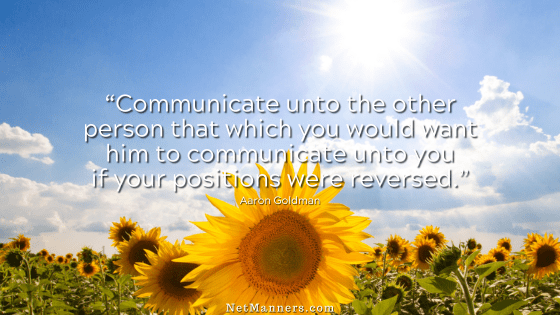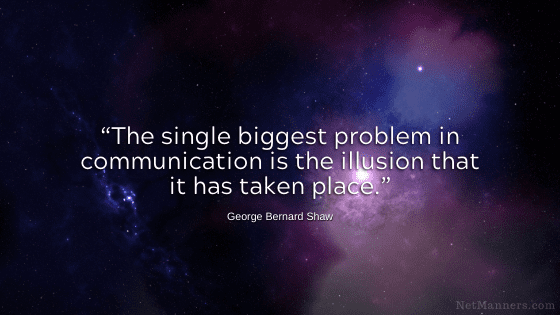Email Chat & Support Ticket Etiquette

Having been on both sides of chat and support ticket requests, I can speak from experience that how you communicate can make a huge difference in terms of the results you’ll receive and how the support agent will interact with you.
Yes, one could say that support agents have to be friendly, take your guff, and go above and beyond. That’s their job, after all.
But we are all human beings. And negating that fact to be bossy, demanding, or downright rude doesn’t help either side.
Chat Support is a Service
Support Ticket and Chat Etiquette include the same issues I always type about. Typing with “knowledge, understanding, and courtesy.”
We have limited space, and support chats are in real-time, so extra effort must be made to be clear and concise.
Let’s define the word support, so we are all on the same page:
SUPPORT:n.
- something providing immaterial help to a person or cause or interest;
- supporting structure that holds up or provides a foundation;
- give moral or psychological support, aid, or courage to;
Chat and Support Ticket Tips
When things go south…
If you are like me, you probably have had some pretty negative experiences with chat and support tickets. Abrupt agents don’t read what you’ve typed and ask questions you’ve already provided the answer for.
When this happens, I blame the company—not necessarily the agent. Training, workload, and cultural differences can all affect the effectiveness of support tools.
Regardless, that is still no reason to respond in kind. They may be having a bad day or new on the job and still getting their bearings. Whatever the issue is on their side, I’m never outright rude.
I see support ticket posts daily that make my jaw drop. I wonder what these folks are thinking by typing in a bossy and demanding way, some in all lowercase, with typos and improper grammar, while asking for help.
Especially with technology, unless you know all the details of what is going on in the background, showing humility and assuming you are not aware of the big picture causing the issue at hand is wise.
HUMBLE: adjective.
- not proud or arrogant; modest: to be humble although successful.
- having a feeling of insignificance, inferiority, subservience, etc.: In the presence of so many world-famous writers I felt very humble.
- courteously respectful:
Whatever your level of frustration is at the time, try to control it. When you need someone’s help and are not an expert on the topic, patience, and courtesy are appreciated and will garner faster responses.
Here’s what I do…
When I need to use a chat or support ticket system, I put myself in the agent’s shoes and type to them like I would like to be communicated with. Always reflecting extra courtesy and gratitude because I know that is how I can get the results I need.
Approaching support staff with that extra courtesy reflects that you are a person they will want to help. It also shows that you realize you need help and are open to new concepts and learning a few new things along the way.
Exactly the type of customer those in the service industry are eager to help.






